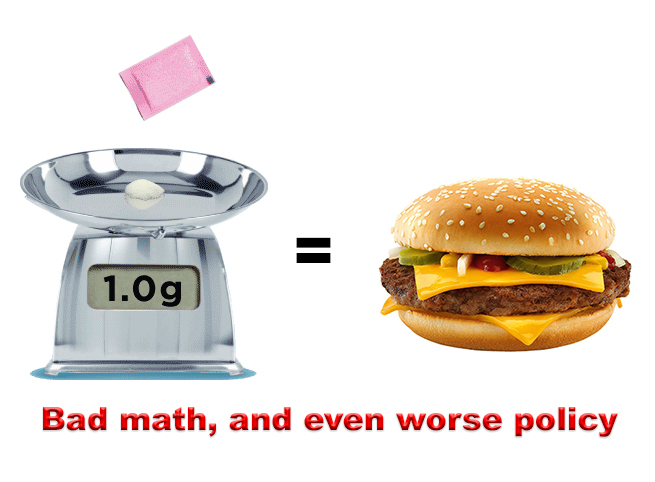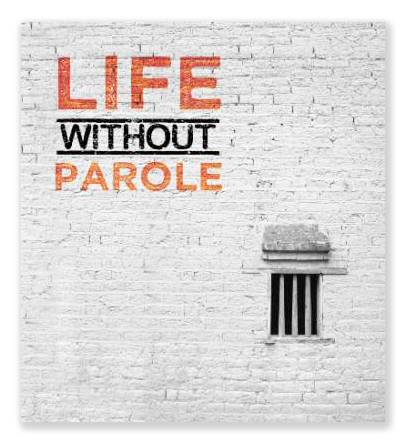We post news and comment on federal criminal justice issues, focused primarily on trial and post-conviction matters, legislative initiatives, and sentencing issues.

DESPITE HEADWINDS, EQUAL ACT MAKING SOME PROGRESS
Those who keep emailing me asking about rumors that Congress has just passed this or that bill favoring inmates should take a deep breath and consider how hard it is for Congress to pass legislation that almost everyone seems to be for. The biggest criminal-justice tease in the current Congress has been the EQUAL Act – which would eliminate federal sentencing disparities between crack and powder cocaine – that passed the House of Representatives overwhelmingly last September but has gone nowhere in the Senate.
Last week, Sen. Jerry Moran (Kansas) became the ninth Republican Senator to sign on as an EQUAL Act co-sponsor. That’s crucial: the bill can count on 50 Democratic Senators voting for it, but in the Senate, a controversial bill needs 60 votes to avoid a filibuster that would block a vote. Sen Moran locks in a 59th vote for EQUAL, increasing the odds that the Senate will bring it to a vote this year.
 EQUAL will make a gram of crack – now considered equal to 18 grams of powder – equal to a gram of cocaine. The change would be retroactive and would likely lead to a dramatic reduction in crack sentences across the board.
EQUAL will make a gram of crack – now considered equal to 18 grams of powder – equal to a gram of cocaine. The change would be retroactive and would likely lead to a dramatic reduction in crack sentences across the board.
When might the EQUAL Act be voted on? Congress doesn’t keep a schedule like that. Often, a decision by leadership to bring a bill to a vote is announced only days or hours in advance and is driven by Congressional perception of public sentiment.
Sentiment might be going in the right direction. Last week, The Nation (which is considerably left of center politically) wrote that “just a few decades ago, the left and the right, politicians and the public, universally embraced the criminalization of drug use. But a new consensus has emerged.”
 To the extent public sentiment is driven by facts – often an iffy proposition – a detailed study of federal life and “de facto” life sentences for drug offenses published earlier this month by The Ohio State University Drug Enforcement and Policy Center found that between 1990 and now, “crack cocaine was the most common drug type associated with life sentences imposed for drug trafficking… (48%), followed by powder cocaine (26%) and methamphetamine (14%).” Plus – and this may be the statistic that gets EQUAL passed – the study found what Filter magazine called “stunningly awful racial disparities. Federal life sentences are practically reserved for defendants who are black (62.4 %) or Hispanic (22%). Crack cocaine was the drug involved in roughly half of federal life sentences, yet the disparities held independent of drug type.”
To the extent public sentiment is driven by facts – often an iffy proposition – a detailed study of federal life and “de facto” life sentences for drug offenses published earlier this month by The Ohio State University Drug Enforcement and Policy Center found that between 1990 and now, “crack cocaine was the most common drug type associated with life sentences imposed for drug trafficking… (48%), followed by powder cocaine (26%) and methamphetamine (14%).” Plus – and this may be the statistic that gets EQUAL passed – the study found what Filter magazine called “stunningly awful racial disparities. Federal life sentences are practically reserved for defendants who are black (62.4 %) or Hispanic (22%). Crack cocaine was the drug involved in roughly half of federal life sentences, yet the disparities held independent of drug type.”
The study also found that defendants who went to trial accounted for what the study called an “astonishing 72% percent of those sentenced to life or de facto life for drug trafficking.”
The phenomenon is usually called the “trial penalty.” I have some doubts about the amount of credence given to this statistic. It may be that people who went to trial were punished with life sentences they otherwise would have avoided without trial. But it is as likely that people whose Guidelines sentencing range – especially in the pre-Booker period when Guidelines sentencing ranges were mandatory – faced life whether or not they pled guilty. If a defendant is bound to get a life sentence whether he pleads guilty or not, he’s got nothing to lose and a chance – however slight – the jury might be crazy enough to acquit. Under those circumstances, the potential sentence drives the trial decision instead of the other way around.
 A more troubling statistic to my thinking was this finding: just five of the 94 federal districts – all three Florida districts, one in Virginia, and the District of South Carolina – accounted for 25% of life sentences imposed for drug trafficking during the study period. This is a powerful disparity argument for those sentenced in those districts, although unfortunately, it must be made to the very courts that are the worst offenders.
A more troubling statistic to my thinking was this finding: just five of the 94 federal districts – all three Florida districts, one in Virginia, and the District of South Carolina – accounted for 25% of life sentences imposed for drug trafficking during the study period. This is a powerful disparity argument for those sentenced in those districts, although unfortunately, it must be made to the very courts that are the worst offenders.
The study is right: crack sentencing has been a disaster for any notion of justice.
No one knows when the EQUAL Act will come to a vote, if it does at all. But a ninth Republican to sign on as a co-sponsor is a promising sign that common sense might prevail.
WIBW-TV, Moran becomes ninth GOP Senator to cosponsor bill equalizing sentences for crack, powder cocaine (March 18, 2022)
The Nation, How the Drug War Died (March 19, 2022)
Ohio State University, Drug Enforcement And Policy Center, Dealing in Lives: Imposition of Federal Life Sentences for Drugs from 1990–2020 (March 3, 2022)
Filter, Federal Life Sentences for Drugs: Unconscionable and Massively Biased (March 9, 2022)
– Thomas L. Root

